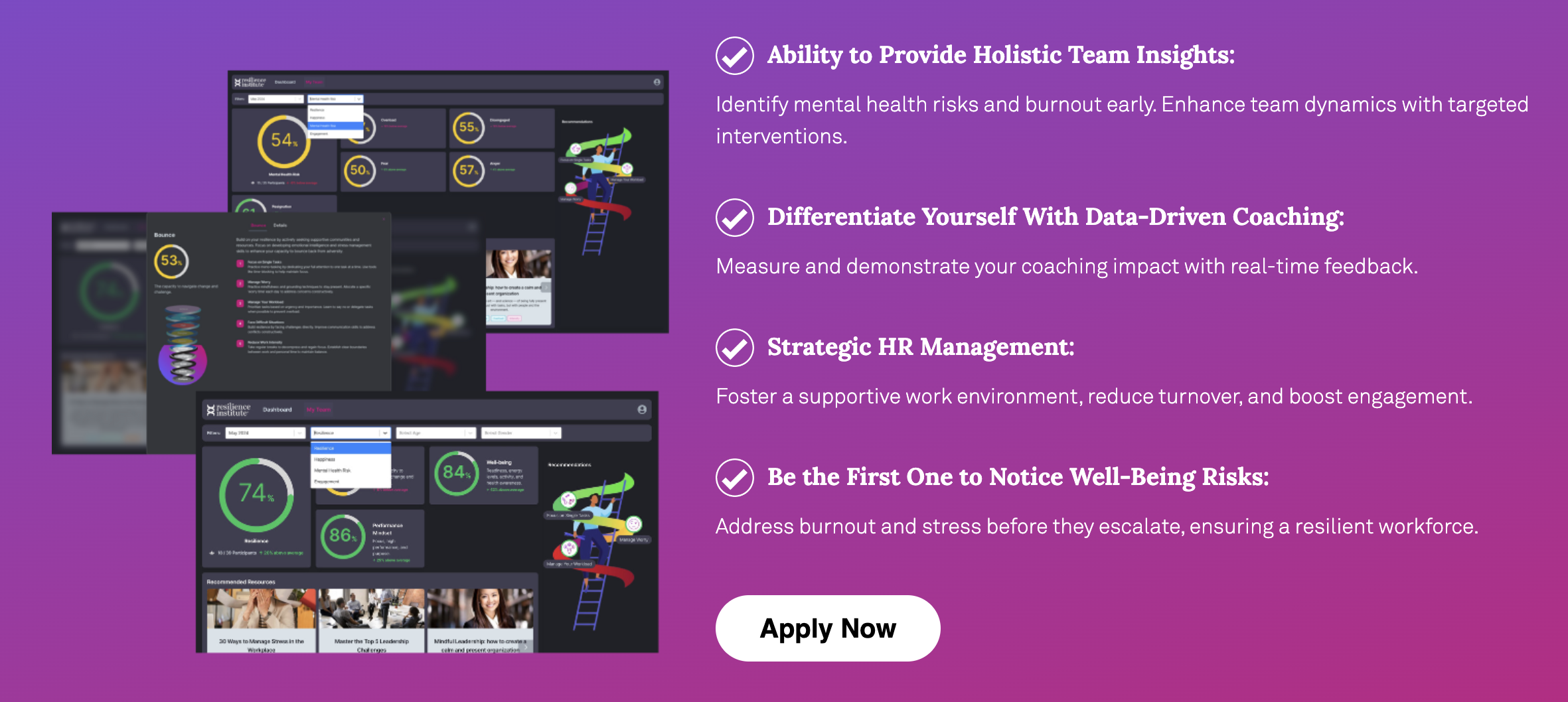
Top Resilience Metrics for Coaches to Track Client Well-Being
For executive coaches, resilience has become a key factor—not only for helping clients manage stress but also for fostering sustainable well-being and performance. Tracking specific resilience metrics can provide powerful insights that support clients’ progress. Here are some essential metrics to consider, along with how they can elevate coaching practices.
1. Burnout Risk
Burnout remains a pervasive issue in the workplace, with recent data showing that 77% of professionals report experiencing burnout in their current role, and more than half face burnout multiple times (Deloitte). Monitoring burnout indicators like exhaustion and engagement allows coaches to develop effective, early intervention strategies that reduce overload and foster sustainable work habits.
2. Emotional Agility
Emotional agility—the ability to adapt and manage emotions constructively—is essential for resilience. According to studies, 79% of British workers report heightened stress levels in recent years (Spill), impacting their ability to handle challenges effectively. Tracking this metric enables coaches to offer exercises for improving adaptability, empathy, and emotional regulation, supporting clients in building resilience.
3. Sleep Quality and Recovery
With approximately 39% of U.S. adults getting less than the recommended seven hours of sleep per night, sleep deprivation has significant impacts on well-being and resilience (Centers for Disease Control and Prevention). Coaches who help clients improve sleep and recovery habits can foster better resilience, enhancing clients’ ability to manage stress and maintain cognitive performance.
4. Focus and Cognitive Clarity
Maintaining focus in a distraction-filled environment is challenging but crucial. Studies show that workers spend around two hours daily recovering from interruptions, which impacts productivity and overall resilience (University of California, Irvine). By tracking focus and providing techniques to improve it, coaches can support clients in managing priorities and enhancing cognitive clarity, which is essential for decision-making.
5. Social and Relationship Fitness
Social connections play a vital role in resilience, as supportive relationships help mitigate stress and boost well-being. Social connection helps to tamp down the stress response (Australian Disaster Resilience Knowledge Hub). By tracking social fitness, coaches can guide clients toward stronger relationships that serve as buffers against stress.
How Can Coaches Effectively Measure These Resilience Metrics?
While these metrics are invaluable in fostering resilience, accurately assessing them can be challenging. The Resilience Assessment Certified Professional program provides coaches with the Resilience Assessment, a structured tool designed to measure these critical areas. Equipped with data on well-being, burnout risk, emotional agility, and social fitness, coaches gain a clear view of their clients’ resilience.
Imagine transforming your coaching practice with this tool in hand. As a Resilience Coach, you’ll have the skills to assess, track, and respond to resilience indicators in real-time, making a lasting impact. With data-driven insights, you can support clients on a deeper level, helping them cultivate well-being, adapt to challenges, and thrive. Learn more about the program here: Resilience Coach Program.

